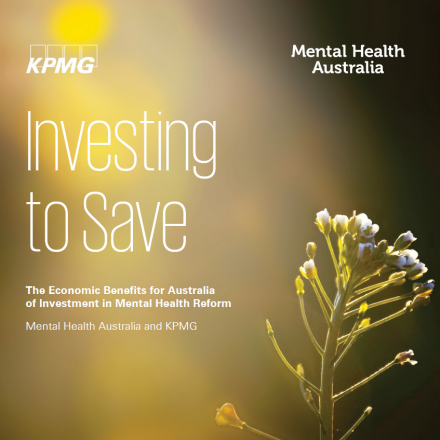CEO Update - Guest blog by Josh Fear - Getting NDIS transition right
Mental Health Australia CEO Frank Quinlan is currently on leave and has invited colleagues to provide a guest blog each week. This week’s guest blog comes from Mental Health Australia Director of Policy and Projects and acting Deputy CEO, Josh Fear.
Getting NDIS transition right
The current transition period is unique in the life of the National Disability Insurance Scheme (NDIS). Never again will such large numbers of people be required to move into the Scheme in such a short period of time. Difficulties were expected, given the numbers of people involved and the complexity of the task at hand. However, people with severe mental illness have been seriously impacted by these implementation issues. This is unacceptable and cannot be allowed to continue.
The NDIA is currently being judged on volume, on time and on budget. The frequently cited estimate of 64,000 participants with psychosocial disability appears to have become a target. In the rush to meet both time and volume commitments outlined in bilateral agreements, as the outgoing CEO of the NDIS recently conceded, insufficient attention appears to have been paid to quality. The timetable and limited resources are dictating process, rather than the other way around. Processes that are ill-suited to people with psychosocial disability are compromising outcomes for individuals. Consequently, the vision of the Scheme and public confidence in its effectiveness are being undermined.
One of the assumptions in the design of the NDIS is that people with disability will actively seek to participate in the NDIS. In reality, it can often take community mental health service providers months to win the trust and confidence of people with psychosocial disability, and then for those people to agree to, and engage with, the planning process to then use psychosocial supports. This psychosocial support is not currently funded by the NDIS, is not part of the Information, Linkages and Capacity Building initiative, and Local Area Coordinators are yet to prove themselves capable of providing the specialist outreach services required.
The Productivity Commission flagged the prospect of a specialist gateway for people with psychosocial disability:
While a specialist gateway provides no guarantee of improved outcomes, it is something that could be explored if wider reforms to the planning process do not result in better engagement with the Scheme for people with psychosocial disability.
While the NDIA’s current efforts to improve the participant and provider experience are a welcome acknowledgement of widespread implementation problems, and may prove in time to make a difference to the experience of people with psychosocial disability in relation to a range of administrative issues, in reality the same structural barriers will remain, preventing this cohort from accessing the Scheme in ways which are responsive to their needs. Without addressing these structures it is inevitable the wider reforms will not result in better engagement with the Scheme for people with psychosocial disability.
On past evidence, however, it will be difficult to tell whether the reforms are working for people with psychosocial disability unless we define in advance what success looks like, with criteria designed with their specific needs in mind, and monitor those criteria objectively and report on them publicly.
The development of a psychosocial gateway should commence in tandem with the NDIA’s reforms to the wider planning process. Early work on the key design features of a psychosocial gateway should be done with consumers and carers, providers and peak advocacy organisations. This work should include the development of metrics in advance, so we can make an objective and transparent assessment regarding whether current reforms to the participant pathway are meeting the needs of people with psychosocial disability, or whether indeed a specialist gateway is required.
We are all striving for a successful NDIS. But success must be measured by how well it supports people with disability – not how well it serves governments.
Josh Fear
Director, Policy and Projects
Acting Deputy CEO




